What Is a Non-Stim Pre-Workout? Complete Guide
Author:
Reviewed by:
(Certified Nutritionist, S&C specialist, M.Sc.Eng. Biotechnology)
Unlock your full potential by engaging with our experts and community! Have questions about your fitness journey or looking for expert advice on weightlifting techniques? Don’t hesitate — leave a comment below and Oleksandr Maksymenko will provide a personalized answer and insights to help you reach your goals.
Torokhtiy is reader-supported. Some links are affiliate links, and we may earn a commission at no extra cost to you. See our disclosure page for details.
When it comes to pre-workout supplements, a lot of people think of the jittery, sort of crazy effects fo caffeine. But what happens if you wan the benefits of that type of pre-workout, but you’re not willing to go through the jitters, crashes, etc.? Why, you get a non-stim pre-workout of course!
They’re made to improve your performance without using stimulants like caffeine. Instead, they focus in ingredients that improve blood flow, boost endurance, and support muscle function. They give you a steady, clean energy boost that’s not followed by a crash.
Sounds great, right? Stick around because we’ll explore everything there is to know about them; how they work, what are the key ingredients, and what benefits you can expect.
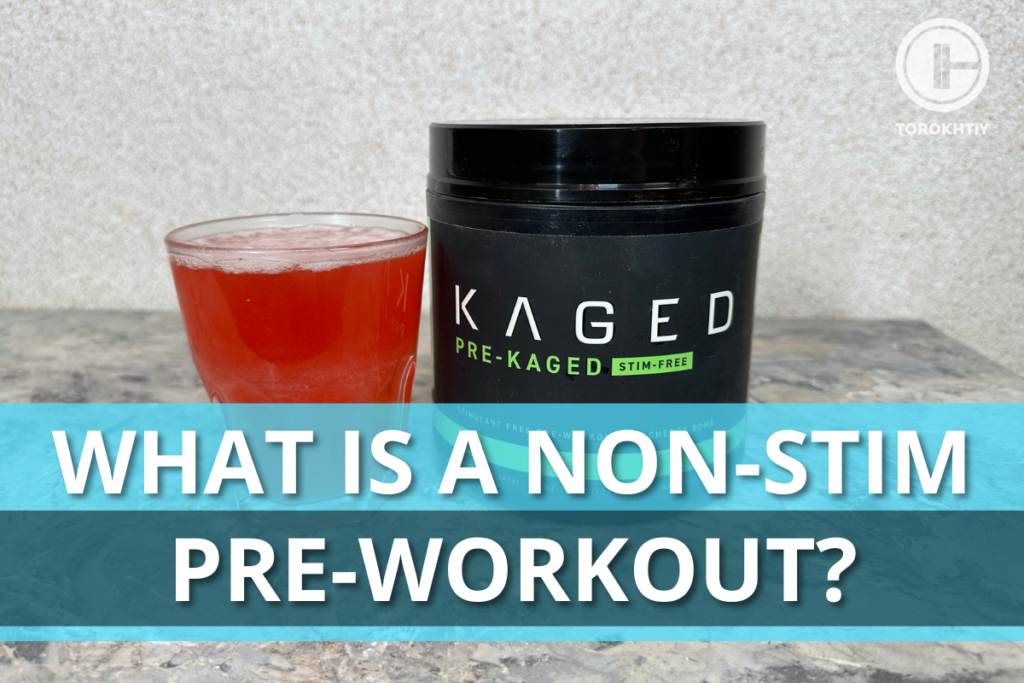
What Are Non-Stim Pre-Workouts?
You may be asking, what is stim-free pre-workout? If you’re unfamiliar with the terminology and are confused as to the difference between traditional pre-workout and pre-workout without stimulants, we’ve answered all your questions below.
| Criteria | Non-Stim Pre-Workout | Stimulant-Based Pre-Workout |
|---|---|---|
| Caffeine Content | 0mg | ~100-250mg+ |
| Best For | Teenagers Caffeine sensitive individuals People who train late at night | Those who want extra stimulation Those tolerant to high doses of caffeine People who train in the morning |
| Benefits | Less Enhanced Focus Ergogenic effects of additional active ingredients | Increased stimulation Enhanced focus Ergogenic effects of additional active ingredients |
The main active ingredient in most standard pre-workout supplements is caffeine. While caffeine does provide a significant boost in energy focus, making it a very effective pre-workout ingredient, there are plenty of reasons someone may choose to avoid caffeine.
Whether they are prioritizing their sleep, are under 18, experience stomach upset from caffeine, or are just generally sensitive, caffeinated pre-workouts aren’t for anybody.
Luckily, there are still plenty of very effective active pre-workout ingredients that don’t contain any caffeine. These mainly include beta-alanine, creatine, l-citrulline, and betaine. Pre-workouts that omit caffeine and focus on these ingredients instead are non-stim pre-workouts.
Essentially any pre-workout with no stimulating effects can be classified as non-stim. These pre-workouts are useful because of the ergogenic effects of their ingredients instead of the raw energy provided by caffeine. These ingredients are mainly responsible for improving total power output, as well as increasing recovery, and muscular endurance.
Our expert Dina Al-Rubaye added:
«Non-stimulant pre-workout supplements, like creatine and electrolytes, offer performance benefits without caffeine. Creatine enhances strength and endurance, recommended for strength training. Electrolytes, such as sodium and potassium, are crucial for muscle and nerve function. They become essential in endurance sports like long-distance running, where sweat causes significant electrolyte loss.»
Beta-Alanine increases total power output, and reduces fatigue; betaine improves force production and muscular endurance; l-citrulline specifically improves muscular endurance; and creatine improves high-intensity exercise performance.
Any combination of these 4 ingredients should provide serious benefits to your overall performance in the gym. While many pre-workouts contain additional ingredients as well, we’ve decided to focus on these 4 in our reviews because they are the most well-studied and proven pre-workout ingredients available.
Ultimately, caffeine is not at all necessary for a solid pre-workout supplement, with the active ingredients found in non-stim pre-workouts having serious benefits as well.
As our expert Sergiy Putsov said:
«I will use non-stim pre-workouts from time to time when I want to avoid caffeine. They’re especially beneficial during late-night training to get the focus benefits without any jitters or sleep trouble.»
What Are the Reasons for Choosing Pre-Workouts Without Caffeine?
There are many reasons why someone may choose to avoid caffeine, especially in a pre-workout. Although we’ve listed them briefly above, here are the 4 main reasons covered in more detail.
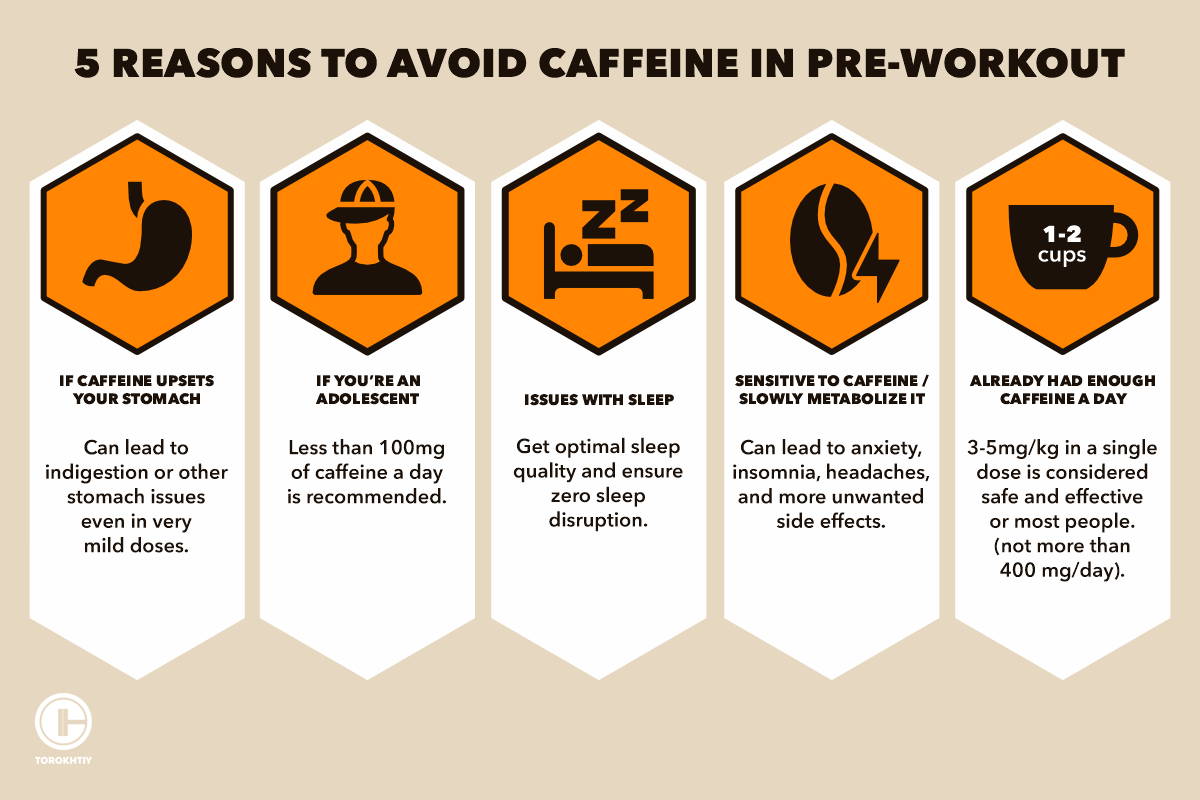
1. Issues With Sleep
One of the most common reasons someone may choose to avoid caffeine is that it disrupts their sleep. If you’re looking to get the most results out of your training, prioritizing rest and recovery is absolutely a necessity, meaning you need to be prioritizing your sleep quality.
For caffeine not to impact your sleep, it’s recommended you avoid any intake for at least 6 hours before going to sleep. With many people working out in the evening, or directly before bed, it’s clear how a caffeinated pre-workout would affect sleep quality. By choosing a non-stim pre-workout, you can be confident that your sleep won’t be affected at all, regardless of when you choose to take it.
2. Adolescence
Another common reason to avoid caffeine is if someone falls in the age range of 12-18. While children under 12 likely shouldn’t have any caffeine, it’s generally believed that teenagers can safely have around 100mg of caffeine a day – approximately 1 cup of coffee.
With most caffeinated pre-workouts containing anywhere from 200-400mg of caffeine in each serving, it’s clear that teenagers should opt to avoid such heavily stimulated supplements. While there are some milder stimulated supplements available that may be suitable for teenagers, it may be better to stick to completely non-caffeinated pre-workouts instead.
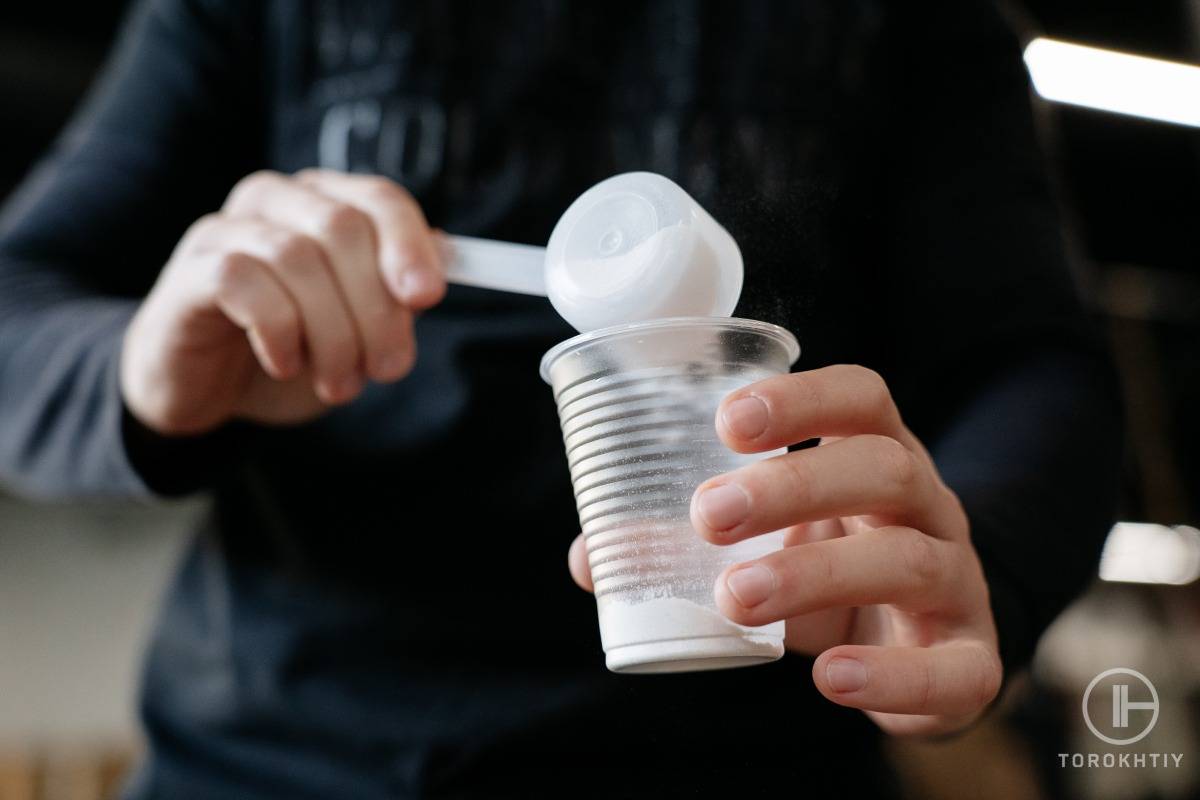
3. Upset Stomach
A common side effect of caffeine is indigestion or an upset stomach. This is commonly experienced by people especially when caffeine is ingested at a very high dose. With this potentially interfering with a workout, as well as causing general discomfort, you’ll likely want to avoid caffeinated pre-workouts if you experience this side effect.
Similar to the point above about teenagers taking pre-workouts, there may be milder caffeinated pre-workouts that won’t upset your stomach as much. However, if you find that caffeine causes indigestion even in mild doses, then a non-stimulated pre-workout is likely the way to go.
4. Caffeine Sensitivity
Finally, some people are just generally more sensitive to caffeine than others, and choose to avoid caffeine entirely as a result. Some negative signs of caffeine sensitivity include a pounding heartbeat, anxiety and nerves, jitters, and of course, sleep disruption.
If you’re somebody who experiences these symptoms from relatively mild caffeine sources like coffee, then you should most likely avoid heavily stimulated pre-workouts. As mentioned above, many pre-workouts contain 2 to 4 times as much caffeine as a cup of coffee.
By opting for a non-stim pre-workout instead, you can get all the benefits of the supplement(except for the stimulation, of course) without any caffeine-related side effects.
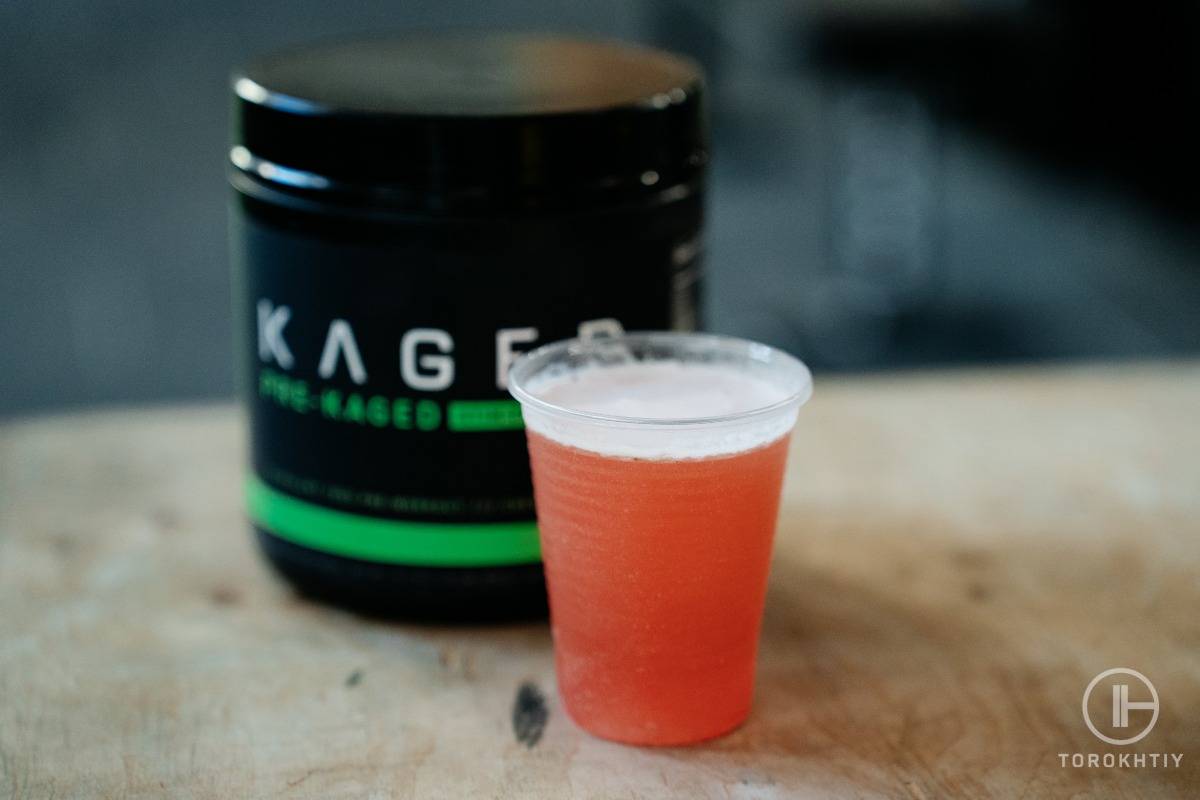
How to Find the Best Non-Stim Pre-Workout?
If you’ve decided that non-stim pre-workout is right for you, there are several factors you’ll want to consider before making a decision. These include the ingredients, the taste/flavor of the supplement, as well as the value you’re getting for your money.
1. Ingredients List
First, and the most important factor to consider are the main active ingredients found in the pre-workout. As you can see from our list, there are 4 key ingredients that provide the most measurable ergogenic effects. These are beta-alanine, creatine, l-citrulline/citrulline malate, and betaine.
| Ingredient | Effective Dose | Effects |
|---|---|---|
| Beta-Alanine | 3g+ | Training Volume Muscular Endurance Reduced Fatigue |
| Creatine | 3-5g | High-Intensity Exercise Performance Muscular Strength Training Volume Muscular Endurance Reducing Fatigue |
| L-Citrulline/ Citrulline Malate | 6g+ of L-Citrulline 8-10g of Citrulline Malate | Training Volume Enhanced “Pumping Effect |
| Betaine | 1.25-2.5g | High-Intensity Exercise Performance Training Volume Enhanced “Pumping“ Effect |
We decided to highlight these ingredients more than others because they have been studied more in-depth, and have shown proven results more than almost any other ingredients commonly included in pre-workout formulas.
As you may have noticed on our list, each product contains a blend of several other “active” ingredients (Alpha-GPC, L-Tyrosine, Huperzine, etc.).
We’ve decided not to focus on these ingredients because either there aren’t enough studies to back up their efficacy, or existing studies show conflicting results regarding their utility. If you’re interested in any of these ingredients, definitely do your own research to determine whether or not they’re worth trying.
Overall, beta-alanine, creatine, l-citrulline, and betaine, have all been proven to measurably improve factors such as power output, recovery, and endurance. By prioritizing these ingredients when making a decision, you can ensure you’ll be getting the most effective non-stim pre-workout possible.
Also, it’s worth noting that you should consider the non-active ingredients as well as the active ones. Although artificial sweeteners and flavorings are largely considered to be completely safe, some people still prefer to avoid them in favor of natural ingredients.
Be aware that several of the products on our list contain artificial ingredients. If you prefer to avoid these ingredients, then double check the full ingredients list to be sure.
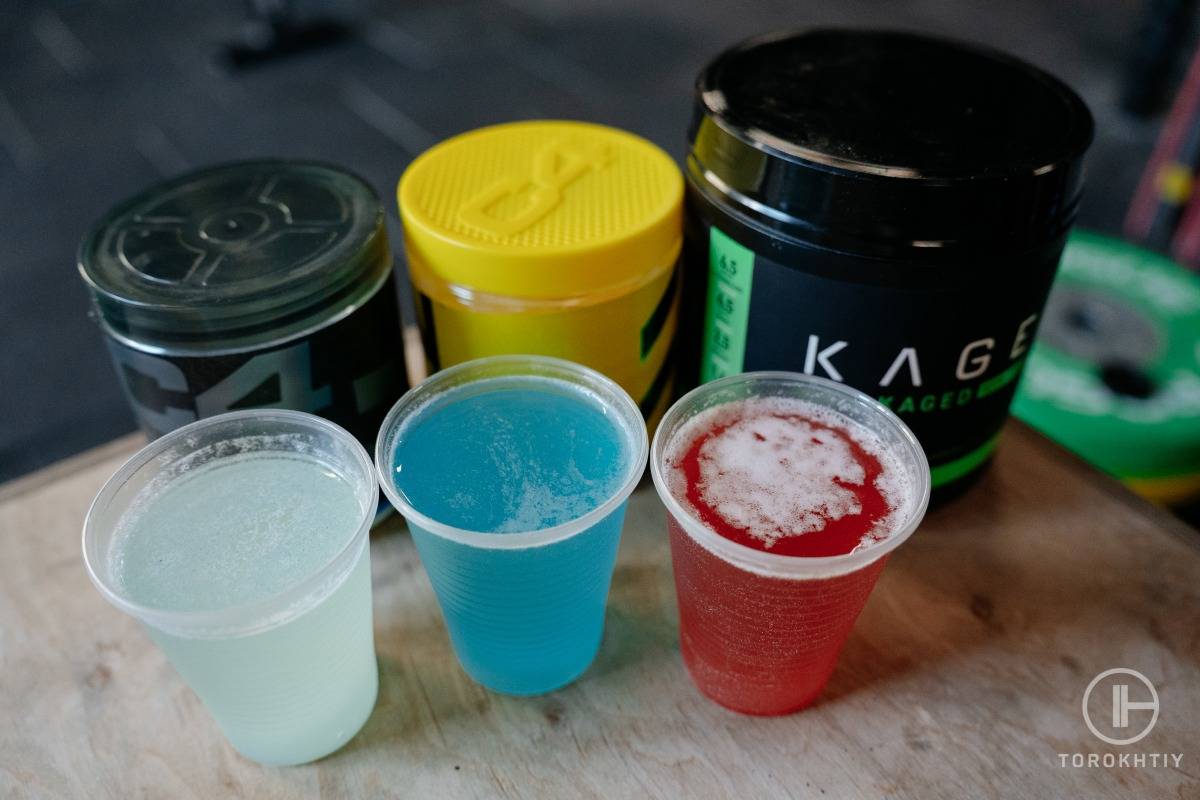
2. Taste/Flavor
Next, it’s worth considering the taste and flavor of whatever supplement you choose to buy. This certainly isn’t as important as the ingredients list when it comes to making a decision, but it is an important factor nonetheless. After all, you’re going to be drinking your pre-workout before every workout!
While some people enjoy the taste of flavored pre-workouts, you may prefer a completely unflavored supplement, in which case you’ll want to seek out a product that has this option. Also, if there’s a specific flavor you enjoy, you’ll want to find a product that offers it.
Finally, there is a slight difference in taste between artificial and natural flavors, so it’s worth considering this as well when deciding on which product to buy.
To see if a product has a generally enjoyable flavor, we recommend reading through user reviews to see people’s opinions. This is usually the best way to gauge whether or not a product mixes well, and tastes good as well.
Of course, taste comes down to a matter of personal preference, so it’s difficult to say if you will enjoy a pre-workouts flavor based on reviews alone. Some trial and error may be required to find a pre-workout that you truly enjoy drinking.
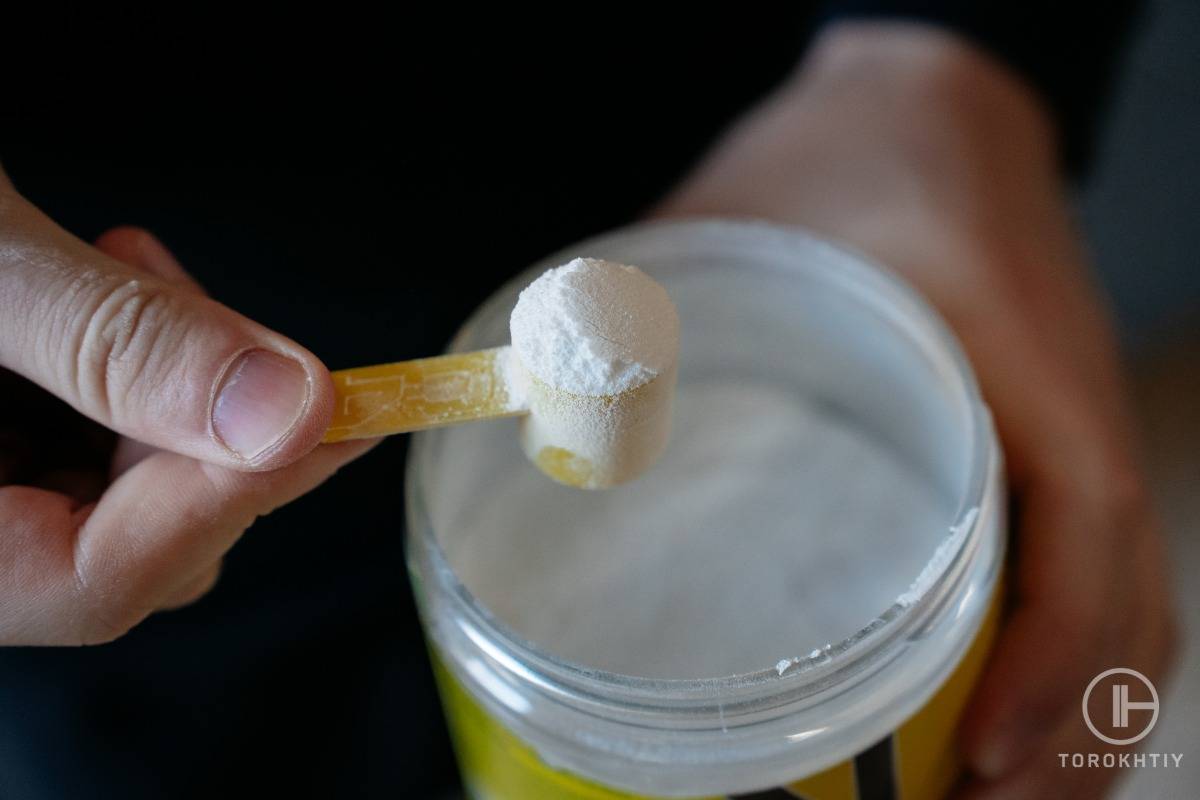
3. Value for Money
Finally, it’s crucial to understand the value you’re getting for your money when buying a pre-workout. This not only includes the price per serving of a product, but the specific ingredients you’re getting, and their doses as well.
As you can see from our list, there’s a wide range of price points for non-stim pre-workouts. They can range from well under 1 dollar, to well over 2 dollars. So, how do you decide which price point is optimal?
You should be considering not only the price per serving, but what the ingredients list looks like as well. It is ultimately up to the individual to decide how much they’re willing to pay for the inclusion of a certain ingredient, or a more complete formula. Generally, the cheaper a pre-workout is, the more simple its formula will be.
We recommend choosing a product that comes at a reasonable price, while still having solid doses of all the ingredients you’re looking for.
Pre-Kaged® Stim-Free
- Item Form: Powder
- Best for: High-Intensity Exercise Performance, Muscular Strength, Training Volume, Muscular Endurance, Reducing Fatigue, Enhanced “Pumping” Effect
- Flavor: Cherry Bomb, Fruit Punch
- Caffeine: 0mg
- Special Ingredients: Beta-Alanine, Betaine, L-Citrulline, Creatine
- Package Information: 1.23lbs (20 Servings)
- Serving: 27.9g
- Price Per Serving: ~$2.25
- Company Founded: 2015
- Recommended by Athletes: Andrea Somer, Colt Nichols, Kris Gethin
In terms of ingredients, Kaged is top-notch, containing solid doses of betaine, beta-alanine, and citrulline, and creatine.
In the formula you will find other active substances, according to the manufacturer they increase the effectiveness of the complex. However, we focus only on the proven effective components, so we do not go into an in-depth review of all the components of this and other supplements.
First, Beta-Alanine has been shown to increase total power output and reduce fatigue.
Similarly, betaine has been shown to improve force production and muscular endurance.
Finally, citrulline has been shown to improve exercise performance and endurance.
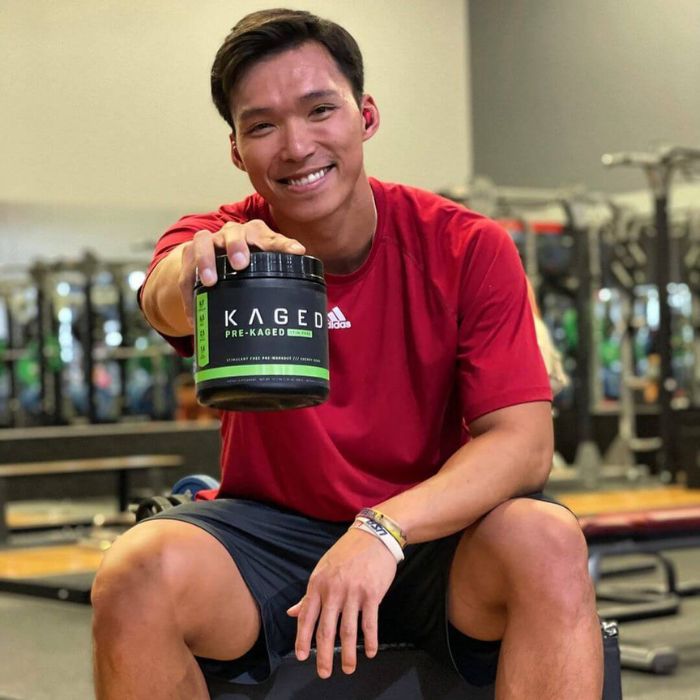
It’s also worth noting that this product contains Citrulline Malate, instead of the L-Citrulline found in other products. Although these are effectively the same ingredient, Citrulline Malate is L-Citrulline bound to malic acid, leading to a slower release in the body, as well as slightly lower potency.
Next up is creatine. This is one of the most popular and well-researched sports supplements on the market, with its main benefits being improvement in high-intensity exercise performance.
Kaged also has a solid dose of taurine which has some proven pre-workout benefits. You can also expect a solid amount of B Vitamins in each serving.
What to Avoid in a Stim-Free Pre-Workout?
While there are several factors you’ll want to look for when buying a stim-free pre-workout, there are also several things you’ll want to avoid when buying these products. These include proprietary blends, useless ingredients, and unknown brands. We’ll be covering these points in more depth below so you can make a more informed decision.
1. Give Preference to Supplements Without Proprietary Blends
First, be sure to check if a supplement contains any proprietary blends in its ingredients list. These are mixes of ingredients without specific doses listed. This is a way for supplement companies to sneak ineffective doses past their customers and pad their bottom line.
Even if a supplement has high-quality ingredients listed, doses are often more important to determine if a supplement will be effective. As a general rule of thumb, it’s best to avoid any supplements that aren’t upfront with their ingredient doses.
It’s worth noting that proprietary blends aren’t inherently bad as long as they list the amount of each ingredient included in the blend. This gives customers a better idea of what they’re paying for.
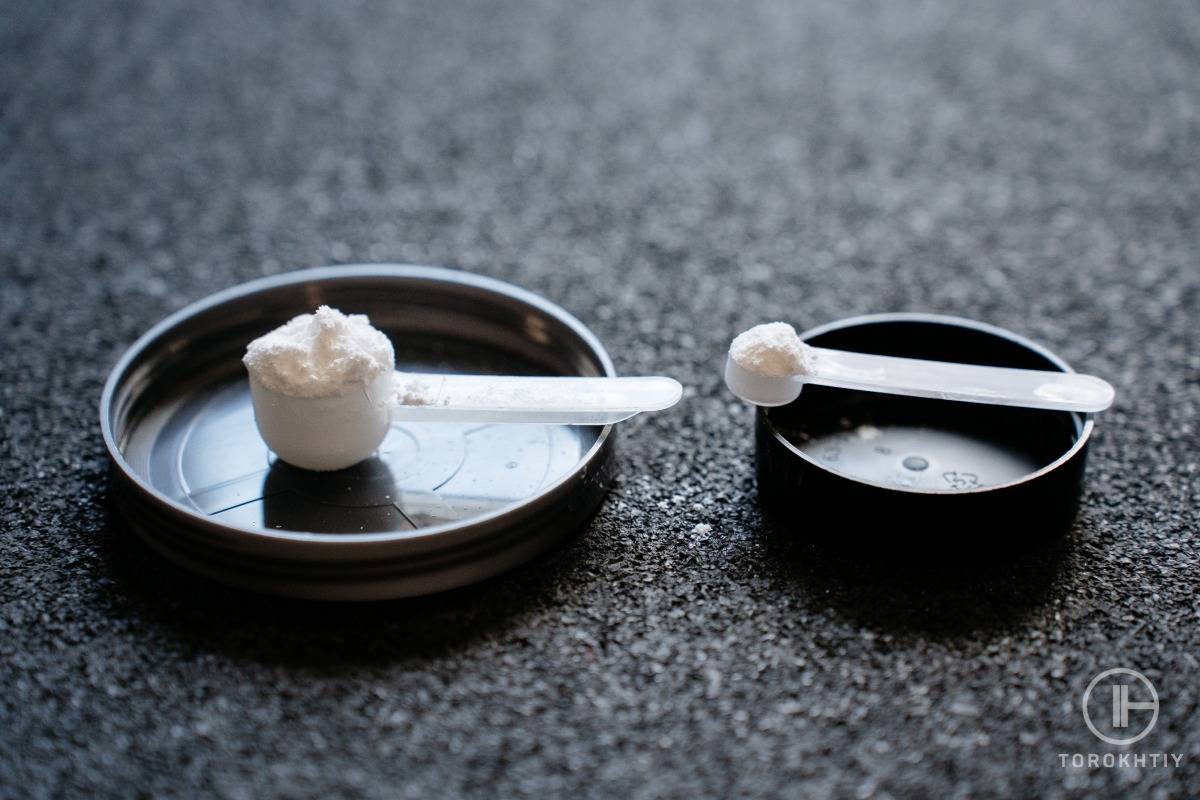
2. Avoid Products With a Huge List of Ingredients Without Scientific Support
Another common downside to stim-free pre-workouts is to have a long list of ingredients where the majority of them have little to no effect. Having tons of ingredients may make a supplement seem more useful even though very few will have any genuine effect.
As mentioned above, we recommend doing your research on common pre-workout ingredients so you know which ones will provide any significant result. Throughout this article, we’ve chosen to highlight Beta-Alanine, Creatine, Betaine, and L-Citrulline as they are common pre-workout ingredients supported by science.
While we recommend doing your research on other ingredients, these 4 ingredients dosed effectively will provide an effective foundation for a stim-free pre-workout. Most other ingredients are not backed by science and are effectively filler.
3. Do not Buy Pre-Workout Supplements from Unknown Brands
Finally, as with most supplements, it’s a good idea to avoid any unknown brands. The better a brand’s reputation is, the more likely it is that they’re selling a high-quality product using high-quality ingredients.
Lesser known brands are more likely to use ineffective doses, or pad their formulas with filler ingredients. It’s also unlikely they have rigorous quality testing processes, which may result in their products containing contaminants.
Typically, the best way to gauge a brand’s reputation is to check reviews. If a product has hundreds to thousands of positive reviews, you can be confident it has a loyal user base who have gotten positive results from the product. If a brand has next to no reviews, it’s less trustworthy, and should probably be avoided.
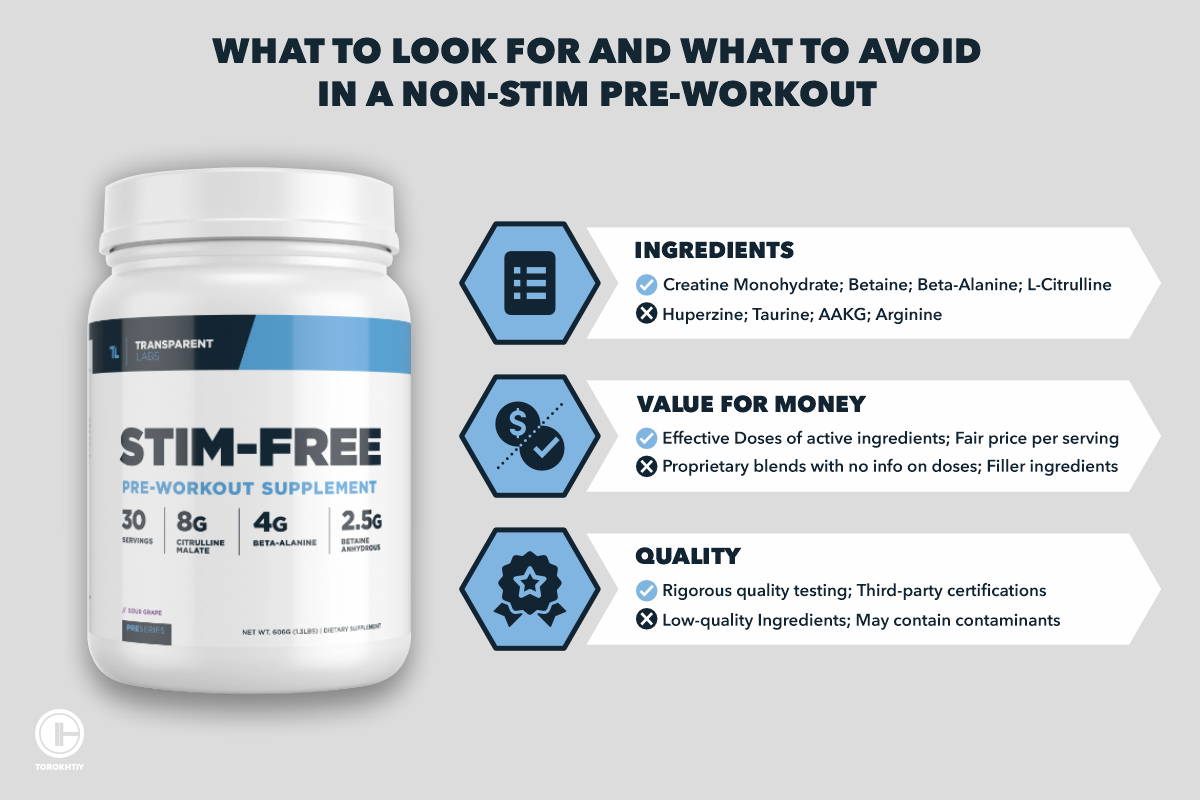
How to Use Non-Stim Pre-Workouts for Best Results?
Because non-stim pre-workouts don’t contain any caffeine, the guidelines for taking them are slightly different from standard pre-workouts.
With caffeinated pre-workouts, we typically recommend taking them around half an hour before your workout to maximize the energy boosting effects of the ingredient. However, because you’re looking to optimize the other active ingredients, we recommend taking non-stim pre-workouts closer to an hour before your workout. This will maximize the effects of l-citrulline and betaine specifically.
In terms of how to take your pre-workout, we recommend following the instructions listed on the package. This will usually be something along the lines of mixing 1 scoop with 1-2 cups of your favorite beverage. Most pre-workouts are best mixed with water, however, you may prefer mixed in with juice – especially if they’re unflavored.
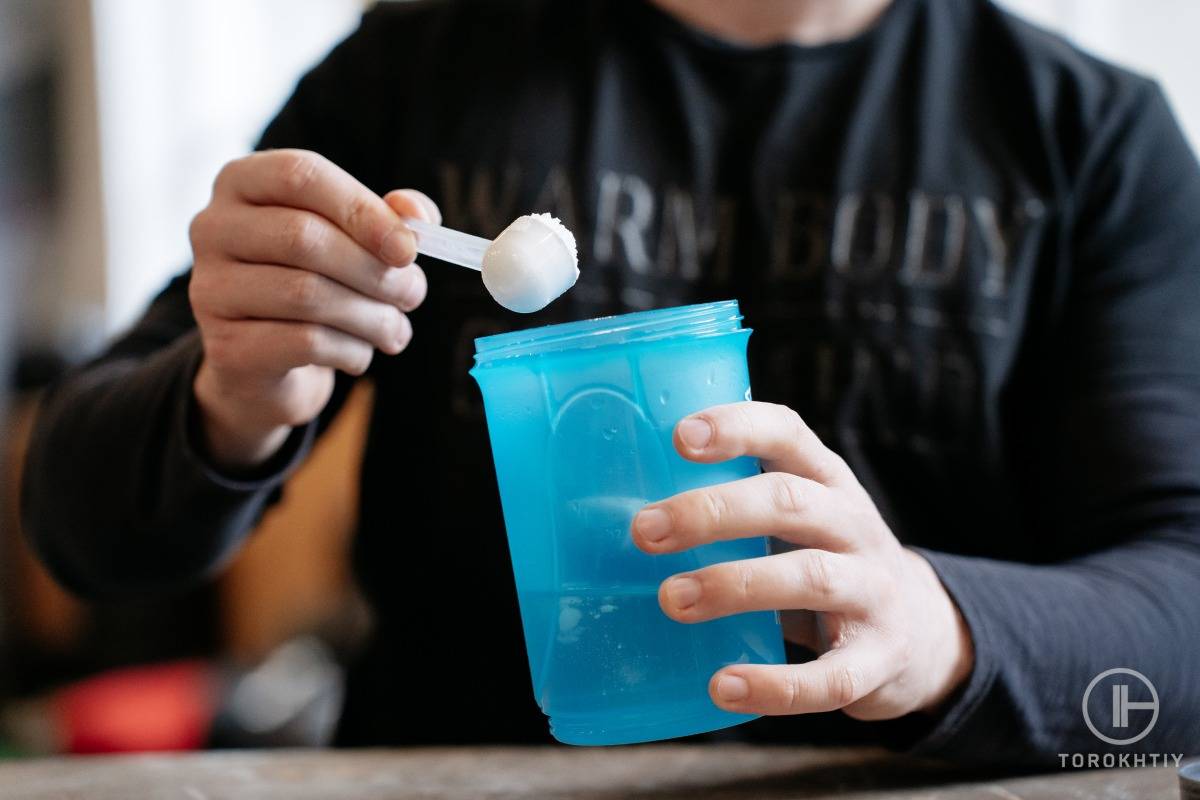
Also, because non-stim pre-workouts don’t contain any caffeine, there’s less risk associated with taking multiple servings at a time. However, be aware that most pre-workouts are formulated with optimal doses in one serving, so double-scooping is most likely unnecessary and can even cause uncomfortable itching sensations from a high dose of beta-alanine.
If your chosen pre-workout has such low doses that you feel double-scooping is necessary, you’re probably better off just buying a stronger pre-workout instead.
Remember that stimulant-based pre-workouts aren’t for everybody. If you’re having trouble deciding between a stimulant-based or non-stim product, see what our expert Ernesto had to say said:
«When choosing between a stimulant-based or non-stim pre-workout, consider your individual goals and seek advice from healthcare or fitness experts.»
FAQ
Is Pre-Workout Bad if It’s Hard?
Not necessarily. If a pre-workout powder is hard, it’s most likely just been sitting for a long time or has absorbed some moisture leading to this hard or clumpy texture. Most pre-workout powders have a very long shelf life, so it’s unlikely that it’s gone bad. We recommend simply breaking the pre-workout up to the best of your ability and using it as normal.
Do Stim-Free Pre-Workouts Work?
Yes! Although stim-free pre-workouts definitely won’t provide you with the same raw energy you’ll get from a heavily caffeinated supplement, there are still tons of benefits to be found from a non-stim supplement. These mainly include the ergogenic effects found from ingredients such as beta-alanine, creatine, l-citrulline, and betaine.
The main benefits of non-stim pre-workout supplements include improved power output, recovery, and muscular endurance.
What Is Non-Stim Pre-Workout Good For?
As mentioned above, non-stim pre-workout is not effective for providing the same high amounts of stimulation that caffeinated pre-workout gives. What it is effective for is maximizing your power, endurance, and recovery, which are all key components to getting the most out of a workout.
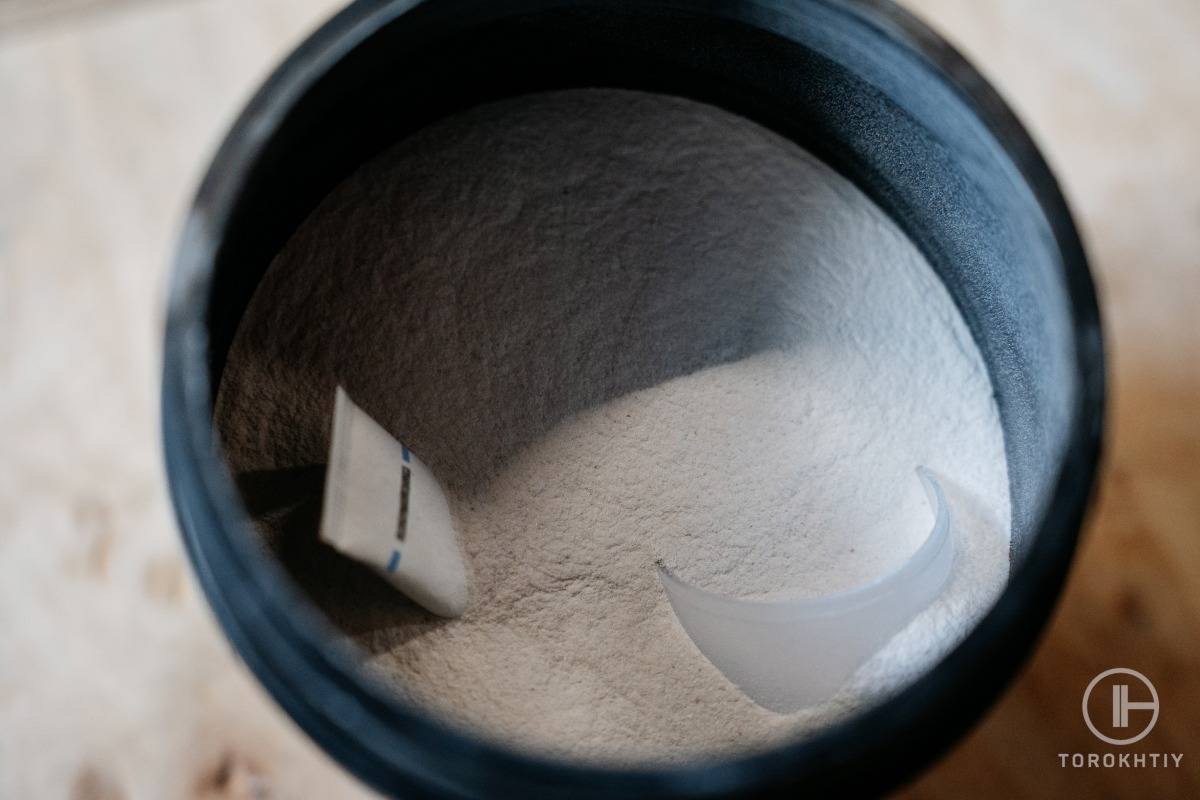
What Is the Best Pre-Workout That Doesn’t Make You Shaky?
The shaky feeling associated with pre-workout is likely caused by high doses of caffeine. Any pre-workout without caffeine will likely not make you shaky. Our recommendation for the best non-jittery pre-workout that won’t make you shaky is Pre-Kaged® Stim Free.
Does Stim-Free Pre-Workout Break a Fast?
Most likely not. While some of the pre-workouts on our list contain around 10-20 calories, the vast majority are 0 calories. While most people wouldn’t consider 10-20 claories as enough to break a fast, if you are very strict about your caloric intake while fasting, then you may disagree. In this case, we recommend a 0 calorie pre-workout that you can confidently take while fasting.
Will Non-Stim Pre-Workout Make Me Itchy?
The itchy feeling associated with pre-workout is caused by the ingredient beta-alanine. While beta-alanine is one of the most effective pre-workout ingredients, it does cause this unfortunate side effect.
This is usually a result of your body not being accustomed to the ingredient, and will dissipate with regular use. If you experience discomfort from beta-alanine, we recommend choosing a pre-workout with a low beta-alanine dosage, or starting with a half scoop and gradually increasing your dosage until you don’t experience any itchiness.
Conclusion
There are plenty of reasons why someone would want to avoid caffeine in their pre-workout supplement. Luckily, thanks to a handful of active ingredients, non-stim pre-workouts can still be very effective at boosting your performance in the gym.
Before you invest in a pre-workout, think about your goals and ingredients you prefer. With the right pre-workout, you’ll enjoy all the benefits without the nasty side effects. For the best pre-workout without caffeine, we recommend Pre-Kaged® Stim Free.
We’d love to hear your thoughts on this subjects, so don’t be shy and leave a comment below!
Experts Who Contributed To This Article
20 years of Oly Lifting & Training experience
Orthopedic Clinical Specialist (OCS)
Professional Nutritionist and Certified Coach

Also read:
- Healthiest Pre Workout
- Does Pre Workout Help Build Muscle
- Does Pre Workout Give You A Pump
- Pre Workout vs Post Workout
- What Is Intra Workout
- Kaged Pre Workout Review
- How To Make Pre Workout Taste Better
- Nitric Oxide vs Pre Workout
- Energy Drink Before Workout
- What Is a Non-Stim Pre-Workout? Complete Guide
- Pre Lab Pro Review
References:
- McGonigle, B; Arnold, J; and Lockard, M (2020) “EFFECTS OF BETA-ALANINE ON ANAEROBIC PERFORMANCE,” International Journal of Exercise Science: Conference Proceedings: Vol. 8: Iss. 8, Article 67An update on magnesium and bone health //NIH: https://www.ncbi.nlm.nih.gov/ pmc/articles/PMC8313472/
- Jenna Mae Apicella “The Effect of Betaine Supplementation on Performance and Muscle Mechanisms” Master Thesis https://opencommons.uconn.edu /cgi/viewcontent.cgi?article= 1078&context=gs_theses
- Lauren Wethington “The Ergogenic Effects of Acute Citrulline Malate Supplementation on Weightlifting P eightlifting Performance in T formance in Trained F ained Females” https://scholarworks.uark.edu /cgi/viewcontent.cgi ?article=1024& context=hhpruht
- Richard B Kreider “International Society of Sports Nutrition position stand: safety and efficacy of creatine supplementation in exercise, sport, and medicine” J Int Soc Sports Nutr. 2017 Jun 13;14:18
- Lauren Wethington “Effects Of Alpha-GPC and Huperzine-A On Shor ects Of Alpha-GPC and Huperzine-A On Short Term Memor erm Memory, Anaerobic Power Output, P ower Output, Post Exhaustion Compar ost Exhaustion Compared To Caffeine And Placebo In Healthy College Age Students” https://encompass.eku.edu /cgi/viewcontent.cgi? article=1626& context=etd
- Eric T Trexler “International society of sports nutrition position stand: Beta-Alanine” J Int Soc Sports Nutr. 2015 Jul 15;12:30
- Jenna M. Apicella “The Effect of Betaine Supplementation on Performance and Muscle Mechanisms” https://opencommons.uconn.edu /cgi/viewcontent.cgi?article=1078& context=gs_theses
- Adam M Gonzalez “Effects of Citrulline Supplementation on Exercise Performance in Humans: A Review of the Current Literature” J Strength Cond Res. 2020 May;34(5):1480-1495
- Richard B Kreider “International Society of Sports Nutrition position stand: safety and efficacy of creatine supplementation in exercise, sport, and medicine” J Int Soc Sports Nutr. 2017 Jun 13;14:18
- Christopher Drake “Caffeine Effects on Sleep Taken 0, 3, or 6 Hours before Going to Bed” J Clin Sleep Med. 2013 Nov 15; 9(11): 1195–1200
- David Buchholz “Caffeine and Kids” Columbia University Irving Medical Center https://www.cuimc.columbia.edu /news/caffeine-and-kids
- Amy Yang “Genetics of caffeine consumption and responses to caffeine” Psychopharmacology (Berl). 2010 Aug; 211(3): 245–257.5.
- Photos made by Torokhtiy Media Team.
Why Trust Us?
With over 20 years in Olympic weightlifting, strength training, nutrition coaching, and general fitness our team does its best to provide the audience with ultimate support and meet the needs and requirements of advanced athletes and professional lifters, as well as people who strive to open new opportunities and develop their physical capabilities with us.
By trusting the recommendations of our certified experts in coaching, nutrition, and sports training programming, as well as scientific consultants, and physiotherapists, we provide you with thorough, well-considered, and scientifically proven content. All the information given in the articles concerning workout programming, separate exercises, and athletic performance, in general, is based on verified data.
The product testing process is described in more detail here.
Author: Oleksandr Maksymenko
Certified Sports Nutritionist,
MSc Sports Dietetics
Specializing in: Weight management, Fitness / Sports nutrition
Oleksandr is a professional fitness nutritionist certified by the Fitness Professional Association (FPA). He follows the principles of evidence-based dietetics and fosters a healthy relationship with food in his clients, ensuring there are no strict prohibitions on their favorite foods or frequent lapses. His primary goal is not only to achieve results for you but also to sustain them over the long term, all while enjoying tasty and delicious food.
Reviewed by: Jacek Szymanowski
Certified Nutritionist,
M.Sc.Eng. Biotechnology
Performance architect,
Strength and Conditioning Specialist
With over 30 years of fighting experience, specialization in nutrition coaching for athletes, and expertise in metabolic health and dietary strategies, Jacek offers a comprehensive approach to optimizing your performance and well-being. Backed by a Master of Science degree in Biotechnology, Jacek remains at the forefront of scientific advancements, ensuring that his coaching is always evidence-based and up-to-date.




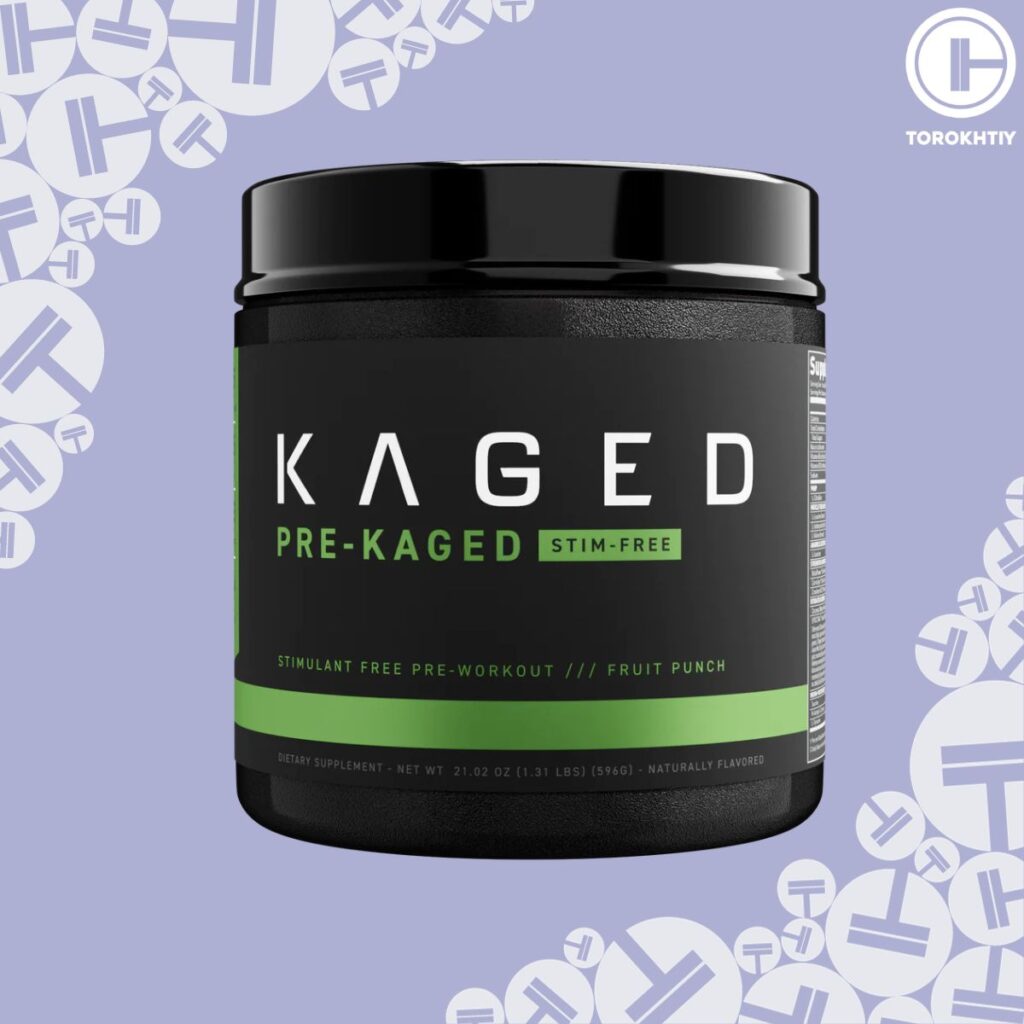



Still have questions after reading our article? Unlock your full potential by engaging with our experts and community! Don’t hesitate — leave a comment below and Oleksandr Maksymenko will provide a personalized answer and insights to help you reach your goals.